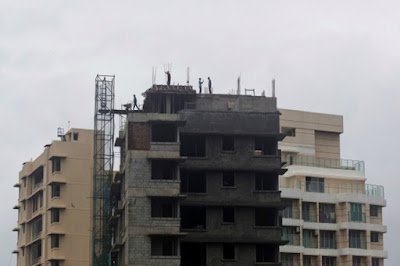Real estate companies are changing conditions of land agreements as the housing sector plunges into a prolonged sluggishness. Joint development agreements (JDAs), which have been the most prevalent form of land development in the past three years, were predominantly revenue-sharing arrangements between landowners and developers. Now, with cash flow generation a massive challenge, deals are being worked out either by a profit-sharing or a stock-sharing arrangement.
A stock split is when the landowner is awarded some stock, which might be in the form of apartments, in effect some kind of sharing arrangement of the saleable land area. Developers said there is no more scope to share revenues or any cash out option for landowners as monetising a project has become more tough. “Earlier landowners expected a payout as soon as a deal was signed for their proportion of land holding, but now payouts are liable in a few years,” said Gopal Sarda, CEO, Kolte Patil Developers. A profit-sharing deal is far from being an ideal arrangement. “It is better when risks and rewards can be clearly defined. It is tough to agree on cost estimations,” said Ashish Shah, COO, Radius Developers. Radius follows a JDA model in all its projects. Besides, there can be disagreements regarding which apartments to sell first, the landowners or the developing companies’, Shah added.
Still, at a time when capital raising is getting increasingly tough and estimates are that no meaningful recovery can be pencilled in before 18 months, developers don’t have a choice. Equally difficult is the position of landowners. “Ideally land owners don’t want to be saddled with permissions, construction timelines and sales; they would rather want an outright sale but there are very few buyers willing to pay for land,” said Anshul Jain, managing director of Cushman and Wakefield, India. m JDAs were pioneered by Mumbai-based real estate company Godrej Properties as an alternative capital light option to tap into expensive catchments. Majority deals that Godrej had struck were a 60:40 split with landowners, which soon became an industry standard.
In the recent slowdown, companies stuck with viable projects, but no construction finance held on to JDAs as a crutch and depended on pedigree partners to get moving. Along with Godrej Properties, Kolte Patil, Tata Housing, Wadhwa Developers and Radius have taken on beleaguered projects belonging to Unitech, DB Realty, Hubtown, Now and Rohan Lifescapes. But now even the financially healthier brand names are hedging well against risk; a 60:40 split is out of the question, said sources. It is leaning far more towards 70:30 in favour of the company that is arranging the finance and constructing the project.
Meanwhile, a Crisil research report said the housing sector will take 12-18 months to show signs of recovery. According to the report, sales are down across markets with buyers perceiving the market as unaffordable even as capital values have demonstrated a downtrend.
Join the Largest Whatsapp Group of Real Estate Buyers on Best Real Estate Review Website.

No comments:
Post a Comment